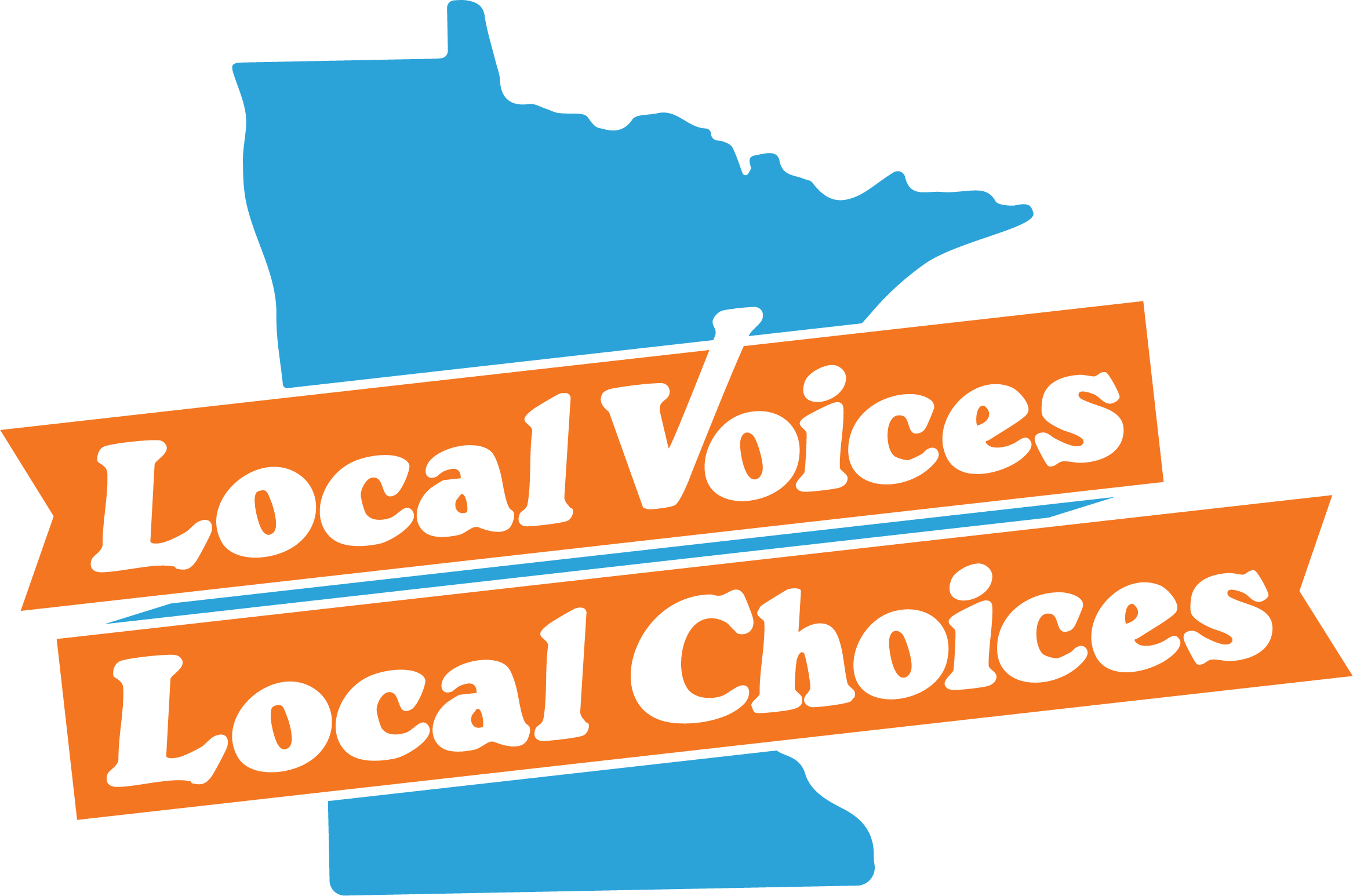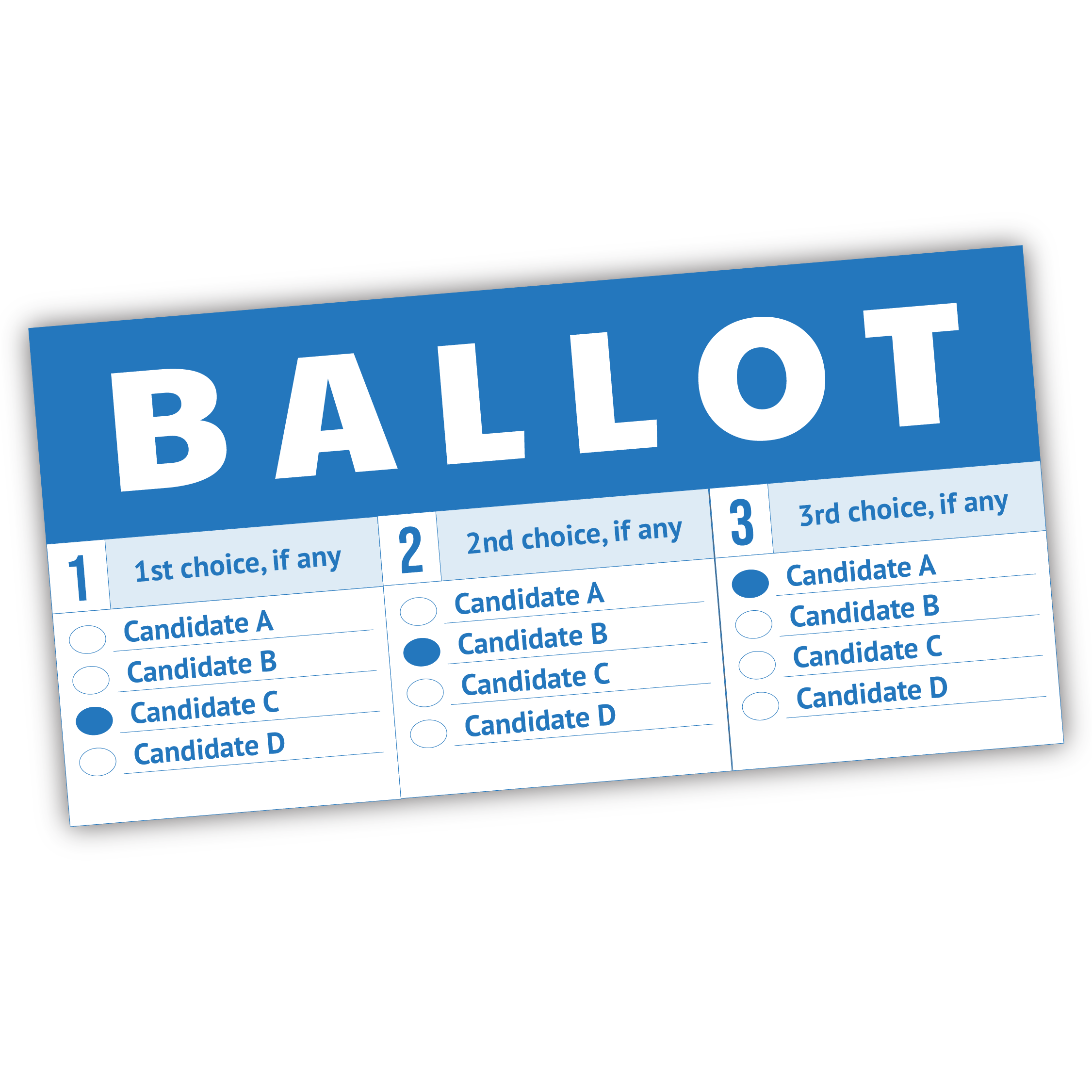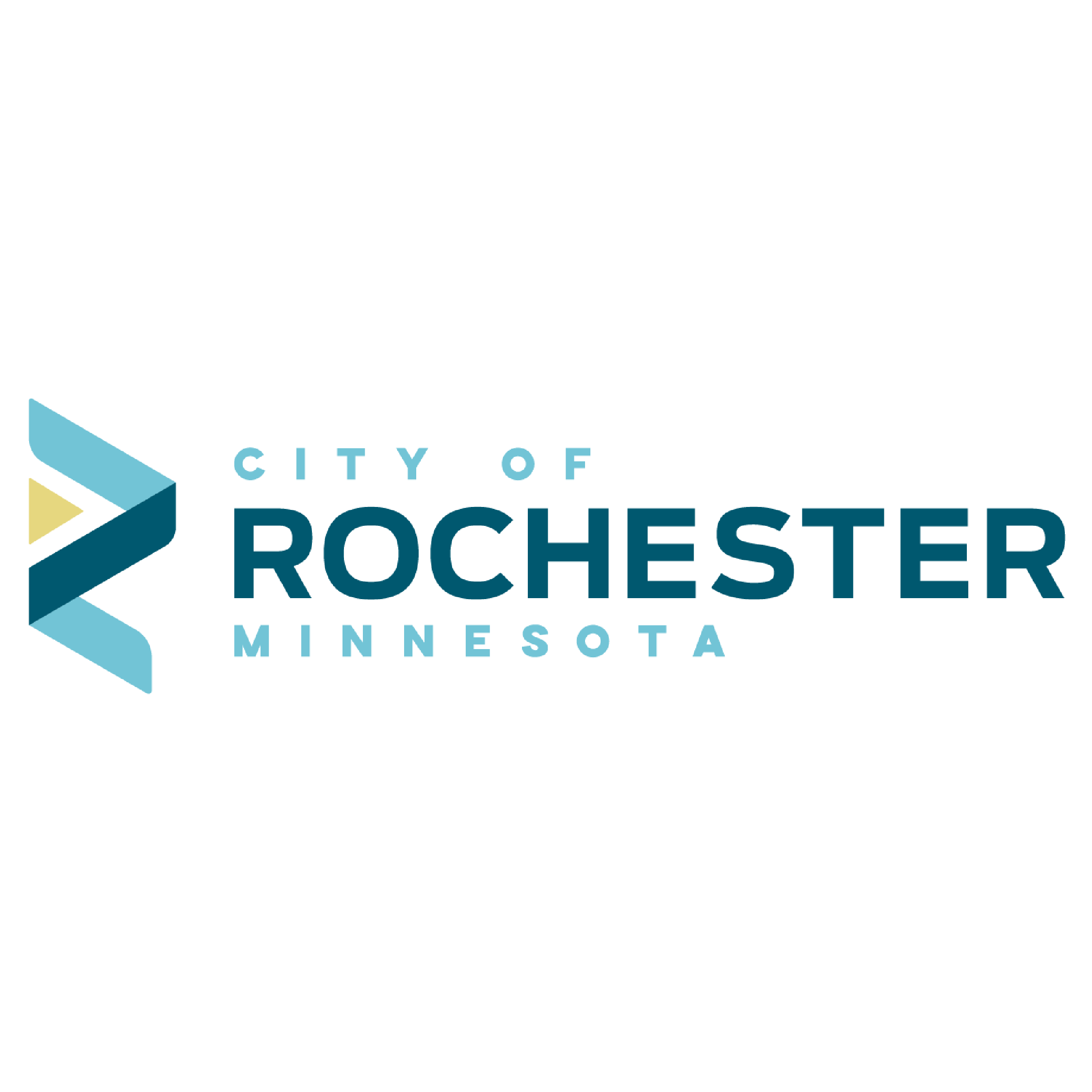
Ranked Choice Voting has been a huge success in the Minnesota cities that use it, increasing turnout and decreasing costs.
Many communities in Minnesota would like to try ranked choice voting, but are unable to do so. Under current law, only charter cities with odd year elections, less than 1% of Minnesota local jurisdictions, have the ability to adopt ranked choice voting (RCV). The Local Voices, Local Choices Act would allow all cities, counties, and school districts, which all hold nonpartisan elections, to adopt RCV if they wish.
The Local Voices, Local Choices Act narrowly missed passage in the House in 2024 by only two votes. In 2025, the bill was reintroduced as Senate File 1079. Contact your state legislators and urge them to support the bill!
The Local Voices, Local Choices Act:

FREES MORE MINNESOTA LOCAL JURISDICTIONS TO ADOPT RCV
The Local Voices, Local Choices Act allows all cities, counties, and school districts to adopt RCV if they wish. Fewer than 1% of Minnesota cities, counties and school districts are currently able to adopt ranked choice voting.

PROMOTES LOCAL CONTROL
The Local Voices, Local Choices Act imposes no mandates. It would give power to cities, counties, and school districts to decide if ranked choice voting works best for their communities.

SETS RULES FOR ADOPTION OF RCV
The Local Voices, Local Choices Act allows ranked choice voting to be adopted by ordinance, resolution, referendum, or amending a charter.

FREES MORE MINNESOTA LOCAL JURISDICTIONS TO ADOPT RCV
The Local Voices, Local Choices Act:
1. Sets consistent standards for implementing RCV.
2. Gives the Secretary of State rulemaking authority to set additional standards as needed.
3. Provides for state certification of RCV voting equipment and tabulation systems.
RCV in Minnesota
✓ Easy and popular:
Every poll shows voters find RCV easy to use and want to keep it.
✓ More choices:
RCV gives voters more choice and more voice.
✓ Diverse and inclusive:
RCV is accelerating representation of women and communities of color.
✓ Higher turnout:
In every RCV city in Minnesota, turnout is up.
✓ Efficient and cost-effective:
Eliminates the need for a costly, low-turnout local primary.
RCV Local Option Supporters




































Frequently Asked Questions
What does the Local Voices, Local Choices Act do?
Under current law, only charter cities with odd year elections, less than 1% of Minnesota local jurisdictions, have the ability to adopt ranked choice voting (RCV). The Local Voices, Local Choices Act allows all cities, counties, and school districts, which all hold nonpartisan elections, to adopt RCV if they wish. The bill:
- Gives power to cities, counties, and school districts to decide if RCV is best for their community.
- Promotes local control and has no mandates.
- Allows these jurisdictions to adopt RCV by ordinance, resolution, referendum, or amending their charter, if they have one.
- Provides consistent standards for implementing RCV in single- and multi-seat nonpartisan elections.
- Gives the Secretary of State rulemaking authority to establish additional standards necessary for jurisdictions to implement RCV in even years and across multiple jurisdictions.
- Provides for state certification of RCV voting equipment and tabulation systems, allowing for faster election results.
What is Ranked Choice Voting and how does it work?
Ranked Choice Voting (RCV) – sometimes called Instant Runoff Voting – is a simple change to the ballot that lets voters rank candidates in order of preference and ensures winners earn a majority of voter support. It’s like an instant runoff, but it happens in a single, decisive and cost-effective election. Voters have the option to rank candidates: first choice, second choice, and so on. In a single-seat election, if a candidate earns a majority (50% + 1) of first-choice votes, that candidate wins. If not, then the candidate with the fewest first-choice votes is eliminated, and these ballots now count for those voters’ second choices. This process continues until one candidate reaches a majority and wins, or in multi-seat elections, until candidates have reached the winning threshold and all seats are filled. See the MPR videos on how RCV works in single- and multi-seat elections HERE.
What are the benefits of RCV?
Ranked choice voting has been shown to:
- Increase voter participation
- Give voters more choice and more power
- Ensure majority winners and encourage candidates to build broad majority coalitions
- Eliminate vote splitting, the spoiler problem, and wasted votes
- Promote more inclusive, diverse and representative elections
- Discourage mudslinging and foster more civil, issue-oriented campaigns
- Reduce polarization and extremism
- Be more efficient and cost effective, saving local jurisdictions the expense of a low turnout local primary
Who supports the Local Voices, Local Choices Act?
The local options measure is supported by the Secretary of State as well as the League of Minnesota Cities, the League of Women Voters and several municipalities and counties have approved resolutions in support of this provision or added this as a priority in their legislative agenda. It is also supported by a coalition of organizations, including ACER, AFSCME Hennepin County, Clean Elections MN, Community Power, Indivisible Minnesota, Jewish Community Action, Latino Lead, LWV-MN, Minnesota DFL, Minnesota Farmers Union, Minnesota Nurses Association, NAACP Minneapolis, Represent Us, Teamsters, Vote Run Lead, and We Choose Us.
Does current voting equipment work for ranked choice voting?
Most Minnesota jurisdictions have voting machines that can scan and record ranked ballots. The Local Voices, Local Choices Act provides state certification of RCV voting equipment and tabulation systems, allowing for faster election results.
When are ranked-choice election results available?
The RCV tabulation process used most commonly in Minnesota allows for next-day results, and this process would be even faster and more efficient once RCV tabulation software is certified in Minnesota.
Are RCV results secure, accurate and transparent?
Yes. Ranked choice voting is just as secure, accurate and transparent as our current voting system. The five Minnesota cities that already conduct ranked-choice elections use paper ballots, and any future use of RCV in Minnesota would use paper ballots, the cornerstone of our state’s ballot security. The counting of those paper ballots under RCV would use the same optical scan ballot tabulators that we currently use. Cast vote records in ranked-choice elections allow the public to see how ballots were cast and allocated based on voters’ rankings, and those records are available to anyone who wants to see them after an election is certified and redactions are made to protect voters’ anonymity.
What has been the experience of Minnesota cities that use RCV?
RCV is a tried and true voting method in Minnesota. It has been used in Minneapolis since 2009, St. Paul since 2011, St. Louis Park since 2019, and Bloomington and Minnetonka since 2021. Voters consistently and overwhelmingly report that RCV is easy to use and fosters more civil campaigns. Not surprisingly, huge majorities also report that they like RCV and prefer it over the old system. Voter participation is higher under RCV by promoting more competitive elections with multiple candidates––a key driver of voter turnout. For more detail, see RCV in MN Cities Fact Sheet 2009-2020.
In 2021 and 2023, five Minnesota cities––representing 17 percent of Minnesota voters––conducted ranked-choice elections, and they were a resounding success, with record high turnout, diverse slates of candidates running and winning, issue-focused campaigns, and winning candidates that built broad coalitions of voter support. The elections ran smoothly in all five cities, with a nearly 100 percent valid ballot rate. For more, see FairVote Minnesota’s 2021 RCV Election Overview and the 2023 Ranked Choice Voting Elections Memorandum.
How does RCV increase voter participation?
Ranked choice voting automatically increases voter participation in local elections by eliminating the low-turnout local primary and allowing voters to consider the full slate of candidates in the general election when turnout is higher, more diverse and representative of the community. Since candidates don’t have to worry about vote-splitting or overcoming a low-turnout August primary, RCV encourages more candidates to run, fostering competition and giving voters more choices at the ballot box. Accordingly, RCV promotes more competitive elections with multiple candidates, a key driver of voter turnout.
The Minnesota experience demonstrates that RCV fosters more competitive races and has helped boost turnout in the general election. When Minnetonka first used RCV in 2021, turnout increased 50% over the last similar election in 2017, and in 2023, turnout more than doubled compared to similar cycles. Likewise, when St. Louis Park first used RCV in 2019, voter turnout increased by nearly 50 percent in the November general election over 2015, the last similar election with the Mayor and both at-large council seats on the ballot. In 2021, turnout in Minneapolis was 54 percent, the highest for a municipal election in over 45 years, up from 43 percent in the last election cycle, which was up 10 percentage points from the election cycle in 2013, which exceeded turnout by 13 percentage points from the cycle before that. A similar trend was seen in St. Paul and in other cities across the country with the implementation of RCV.
Does RCV benefit women and BIPOC voters and communities?
Yes. Research comparing election results across the country shows RCV is a significant benefit to women and candidates of color. Women and people of color are much more likely to run and win in higher numbers. RCV gives greater opportunity to women and people of color by opening the process to more candidates and new voices, incentivizing positive campaigns based on the issues, and eliminating the risk of vote-splitting between candidates with similar platforms or from the same community. In fact, RCV has accelerated the opportunity for candidates of color to run and win in Minnesota cities that have adopted this voting system. It eliminates the low-turnout and unrepresentative local primary that is a deterrent for new voices in general and for underrepresented communities in particular. Candidates must be able to raise money and mount a campaign to get the word out by early August, just to get through a primary that is woefully unrepresentative of the city’s voters. Since local elections are a significant pipeline to state elected office, local voting systems can have a significant impact on the diversity and representation in our state legislative bodies as well.
How does RCV help reduce political division and encourage civility?
RCV incentivizes candidates to campaign positively based on issues that matter to voters rather than on personal attacks. Candidates behave very differently when they benefit from second or third choice votes. They reach out to more voters and are less likely to attack an opponent because they don’t want to alienate their opponent’s base voters and risk losing second choice votes. This leads to more civil elections and encourages candidates, once in office, to be accountable and responsive to the broader electorate. Research comparing ranked-choice and plurality elections confirms RCV’s positive impact on civility. While some candidates may try negative campaign tactics in ranked-choice elections, it’s not a successful strategy under RCV and often backfires. For more, see FairVote data on civility.
Is enabling odd-year jurisdictions to adopt RCV enough?
Most local elections in Minnesota are held in even years along with federal and state elections while some are held in odd years:
- All 87 counties hold elections in even years
- Of the 854 cities, 834 (98%) hold elections in even years, 20 (2%) hold elections in odd years
- Of the 331 school districts, 248 (75%) hold elections in even years, 83 (25%) hold elections in odd years
The bill provides standards for use in all local elections and gives the SOS rulemaking authority to establish additional standards for elections in even years and those that occur across more than a single jurisdiction.
